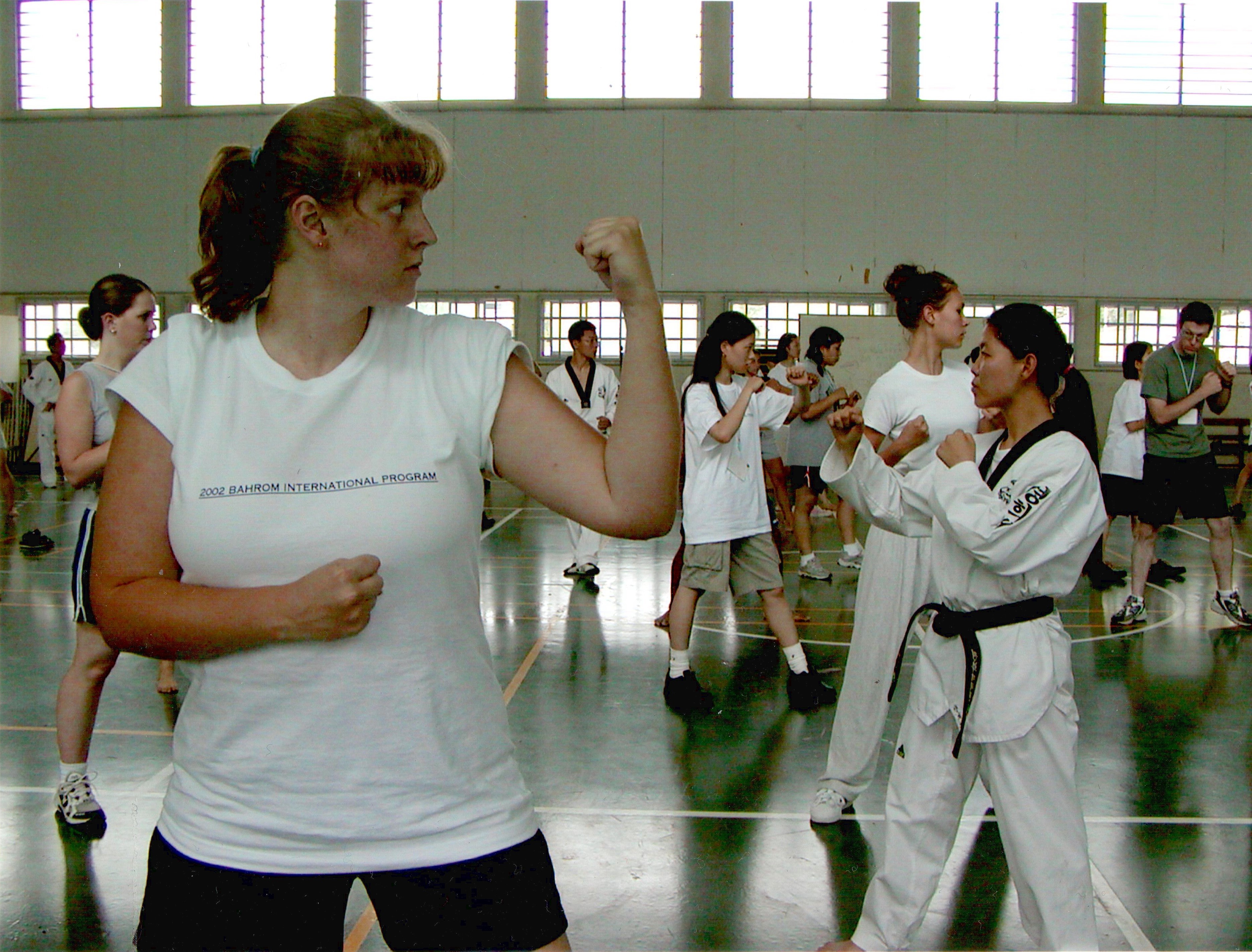Erin M. Ludlow ’04

Erin M. Ludlow ’04
B.A. Economics and Business Administration; Study abroad: South Korea
Graduation Year
2004
Tell us why you chose to attend Hood? Was there a particular moment when you knew Hood was where you wanted to pursue your bachelor’s degree?
I ultimately choose to attend Hood because I felt at home on the campus. My Vanguard tour guide was friendly and knowledgeable about the campus. The professors I met during the tour and the admissions process were clearly engaged with the Hood community and the students. I knew classes would be small. That kind of environment was something I valued coming from a huge, regional high school where it was easy to get lost in the crowd.
When did you know that you wanted to make a study abroad experience part of your Hood career? How did you decide upon South Korea as your academic destination?
I always knew I wanted to make study abroad part of my college experience but wasn’t sure where. Taking Latin was good for my SAT scores, but not great for communicating with modern-day people. Given that, I focused my search on English-language programs. The summer Bahrom International Program (BIP) with Hood’s sister school, Seoul Women’s University, was a great option. As a summer session, BIP (in 2002) was a mix of study and relationship building. Classes on South Korean history, culture, art, etc. were offered in English. The visiting students earned three credits. The Korean attendees got a chance to meet students from the colleges and universities they would be attending in America, Canada, Russia, and Japan during the next academic year.
Tell us about your life in South Korea; what was the most challenging part of your experience? What did you find most rewarding?
The visiting students were paired with students from Seoul Women’s University. They tried to pair us so that the Korean students were matched with people from the school they would attend in the next academic year. We stayed in the Seoul Women’s University dormitory. Classes were interspersed with activities at the University and with trips to Korean landmarks. I found it challenging to navigate the customs that were different from what I grew up with but being polite and curious helped overcome most of that challenge (I still made a few mistakes). Getting to know my Korean “sister” was very rewarding.
How would you compare your university experiences between South Korea and the United States? What are some advantages and disadvantages of the two academic cultures?
This one is difficult for me to answer, and not just because it has been 18 years since the experience. Learning about a topic and then immediately seeing a related location or demonstration was a nice change from more traditional, lecture-only learning. I think this was a departure for both the visiting and the local students.
What was your most favorite, non-academic experience you had in South Korea?
There were many wonderful non-academic experiences! The taekwondo lesson was fun and challenging in the summer heat. Visiting my “sister’s” family for a weekend was a great experience and good reminder that families have a lot in common, no matter their address. The visit to the Joint Security Area and Demilitarized Zone between North and South Korea was an indelible experience. The atmosphere there is saturated with the immense scrutiny and history of that stretch of land. And, as someone who feels calmer in more rural settings (despite living in a city for many years now), the drive and visit to the Bulguksa Temple Complex was a welcome respite from the city.
Lastly, what advice would you give current Hood students who are considering a study abroad experience in South Korea?
South Korea is a wonderful country and Seoul Women’s University felt a lot like Hood (a home away from home). I think my advice for South Korea matches my advice for any foreign travel: use your best manners, roll with the punches, and try all the new experiences offered to you. In an academic setting or with friends/roommates, be prepared to answer questions thoughtfully about the U.S. and your own opinions and experiences (perhaps this is less important now, but it was a consideration for me since my trip was less than a year after September 11th). My advice for travelers that either don’t speak or are still learning the destination language is to write it down. Pull the common phrases and questions and write the English version, the destination language version, and the destination pronunciation in your own notebook. If you must resort to pointing to the translation, referencing a hand-written version can ease your way by showing you are prepared and interested in the people and destination. Go! Challenge yourself! Have fun!
Are you ready to say Hello?
Choose a Pathway
Information will vary based on program level. Select a path to find the information you're looking for!
